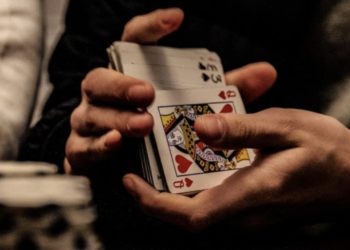Gambling is a universal activity that transcends borders, cultures, and societies. However, the ways in which people gamble, their attitudes towards it, and the social norms surrounding gambling can vary significantly from one culture to another. Cultural beliefs play a crucial role in shaping gambling behaviour, influencing not only how people gamble but also their motivations, perceptions, and the consequences they associate with gambling. This article explores the influence of cultural beliefs on gambling behaviour, delving into how different cultural contexts shape the ways in which individuals engage with gambling.
1. Western Cultural Attitudes Towards Gambling
In many Western cultures, people often view gambling as a legitimate form of entertainment and leisure. The prevalence of casinos, lotteries, and sports betting in countries like the United States, the United Kingdom, and Australia reflects a relatively permissive attitude towards gambling. These societies typically emphasize individual freedom and personal responsibility, framing gambling as a personal choice and a recreational activity. This cultural context encourages regulated gambling environments where individuals can gamble openly and responsibly. For those looking to experience this, you can play at a 777 bet casino and receive a bet777 bonus for the new players.
In the United States, the diverse gambling landscape includes Las Vegas and Atlantic City as iconic gambling hubs. The growth of online gambling and sports betting has further expanded access, making gambling a common pastime. The cultural acceptance of gambling is evident in the widespread participation in state lotteries and charity raffles. In the UK, gambling is deeply ingrained in the culture, with a strong tradition of betting on horse races, football matches, and other sports events.
Australia, known for its high rate of gambling participation, has a distinctive gambling culture centred around “pokies” (slot machines) found in pubs and clubs. This widespread availability of gambling opportunities has led to both social and economic impacts, prompting the government to implement harm minimization measures to address gambling addiction.
2. Eastern Philosophies and Gambling
Eastern cultures, particularly those influenced by Confucianism, Buddhism, and Taoism, often have more ambivalent attitudes towards gambling. In countries like China and Japan, people see gambling as conflicting with traditional values of hard work, family cohesion, and moral conduct. While gambling does occur in these societies, it is often less visible and more regulated. In China, for example, the government strictly controls gambling activities, allowing only certain forms such as state-run lotteries and specific gambling zones like Macau.
People often refer to Macau as the “Gambling Capital of the World” because it operates under a unique legal framework that permits casino gambling. The region has become a major destination for high-stakes gambling, attracting tourists from mainland China and around the world. However, gambling in mainland China remains heavily restricted, with the government promoting lottery games as the only legal form of gambling.
In Japan, the cultural ambivalence towards gambling is reflected in the legal status of various gambling activities. While casino gambling remains prohibited, certain forms of gambling, such as pachinko (a type of mechanical game), horse racing, and lottery games, are legal and popular. Recent legislative changes have paved the way for the establishment of integrated resorts, signalling a shift in Japan’s approach to gambling and tourism.
3. The Role of Religion in Gambling Behaviour
Religion significantly influences gambling behaviour in various cultures. In predominantly Christian societies, attitudes towards gambling can vary widely, with some denominations condemning it as sinful while others tolerate it as long as people conduct it responsibly. In Islamic cultures, religious law (Sharia) generally prohibits gambling, viewing it as an immoral activity that promotes greed and distracts individuals from their religious duties. Similarly, Hinduism and Sikhism also have teachings that discourage gambling, emphasizing the importance of living a virtuous and disciplined life.
In Christian-majority countries, denominations can differ in their moral stance on gambling. For example, the Catholic Church historically opposed gambling but has adopted a more nuanced position in recent years, allowing for responsible gaming. Protestant denominations vary, with some evangelical groups advocating for stricter prohibitions while others accept moderate gambling.
Islamic countries, such as Saudi Arabia and Iran, enforce strict bans on gambling, aligning with religious teachings that prohibit games of chance. However, informal gambling does occur, often in private settings. In contrast, countries with significant Muslim populations, such as Malaysia and Indonesia, balance religious prohibitions with regulated forms of gambling to generate revenue.
4. Indigenous Cultural Perspectives on Gambling
Indigenous cultures around the world often have unique perspectives on gambling. For many Indigenous peoples, traditional forms of gambling, such as playing games of chance during cultural ceremonies, hold significant social and cultural value. These activities often strengthen community bonds, share resources, and celebrate cultural heritage. However, commercial gambling has sometimes had detrimental effects on Indigenous communities, leading to higher rates of gambling addiction and related social issues.
In North America, Native American tribes operate casinos on their lands, leveraging their sovereign status to offer gambling opportunities. These tribal casinos have become major economic drivers, providing jobs and funding for community development. However, gambling can also lead to social challenges, such as increased rates of addiction and related problems.
In Australia, Indigenous communities face similar issues with gambling. While traditional gambling practices have cultural significance, the availability of commercial gambling has led to concerns about its impact on social and economic well-being. Efforts to address these issues include culturally sensitive support services and community-led initiatives to promote responsible gambling.
5. Social Norms and Peer Influence
Social norms and peer influence play a crucial role in shaping gambling behaviour across cultures. In cultures where gambling is socially accepted and integrated into social activities, individuals may be more likely to gamble due to peer pressure and social expectations. Conversely, in cultures where people stigmatize or view gambling negatively, individuals may be less inclined to gamble openly or may do so in secret to avoid social disapproval. Understanding these social dynamics is key to addressing gambling behaviour and promoting responsible gambling practices.
In Western societies, people often see gambling as a social activity, with friends and family members participating together. This social aspect can encourage individuals to gamble more frequently and spend more money. Social media and online platforms also contribute to the normalization of gambling, with advertisements and influencer endorsements making it seem like a common and acceptable pastime.
In contrast, in cultures with negative attitudes towards gambling, individuals may experience social stigma if they are known to gamble. This can lead to secretive behaviour and reluctance to seek help for gambling-related problems. Public health campaigns and community education programs can help shift social norms and promote healthier attitudes towards gambling.
6. Economic Factors and Gambling
Economic conditions and cultural beliefs about money also influence gambling behaviour. In some cultures, people see gambling as a way to achieve financial success and social mobility, particularly in societies with limited economic opportunities. This belief can drive individuals to gamble excessively in the hope of winning big. Conversely, in cultures that value financial prudence and stability, gambling may be viewed as a risky and irresponsible activity that threatens economic well-being. These economic and cultural factors intersect to shape how and why people gamble.
In economically disadvantaged regions, people perceive gambling as a potential escape from poverty. The allure of a large payout can lead individuals to invest significant portions of their income in gambling activities, despite the low odds of winning. This behaviour is often fueled by advertisements and media portrayals of gambling as a pathway to wealth.
In more affluent societies, people may see gambling as a leisure activity that provides entertainment and excitement. Individuals with disposable income may gamble for the thrill rather than out of financial necessity. This distinction highlights how economic context and cultural beliefs about money influence gambling behaviour.
7. Modernization and Globalization
Modernization and globalization have significantly impacted gambling behaviours across cultures. The rise of online gambling platforms and the global reach of gambling enterprises have exposed individuals to new forms of gambling and influenced cultural attitudes towards it. In many cultures, traditional views on gambling are being challenged by the accessibility and convenience of online gambling, leading to shifts in gambling behaviour and the emergence of new social norms. As cultures become more interconnected, the influence of global gambling trends on local practices is increasingly evident.
The internet and mobile technology have revolutionized the gambling industry, making it possible for individuals to gamble from anywhere at any time. This convenience has contributed to the growth of online casinos, sports betting platforms, and poker rooms. As a result, gambling is no longer confined to physical locations, and cultural attitudes towards gambling are evolving.
Globalization has also led to the cross-cultural exchange of gambling practices and norms. Popular gambling games and betting strategies spread quickly across borders, influenced by media, travel, and international events. This cultural diffusion can lead to the adoption of new gambling behaviours and the blending of traditional and modern practices.
Conclusion
Cultural beliefs play a pivotal role in shaping gambling behaviour, influencing how individuals perceive and engage with gambling activities. From Western permissiveness to Eastern ambivalence, and from religious prohibitions to Indigenous traditions, the cultural context in which gambling occurs profoundly affects its practice and social implications. As globalization continues to blur cultural boundaries, understanding these cultural influences becomes essential for promoting responsible gambling and addressing the challenges associated with gambling behaviour in diverse cultural settings. By recognizing and respecting cultural differences, policymakers and practitioners can develop more effective strategies to support healthy and responsible gambling practices worldwide.
David Prior
David Prior is the editor of Today News, responsible for the overall editorial strategy. He is an NCTJ-qualified journalist with over 20 years’ experience, and is also editor of the award-winning hyperlocal news title Altrincham Today. His LinkedIn profile is here.


![7 Best POS Software in the UK [2026 Edition]](https://todaynews.co.uk/wp-content/uploads/2026/02/7-Best-POS-Software-in-the-UK-2026-Edition-360x180.png)










































































